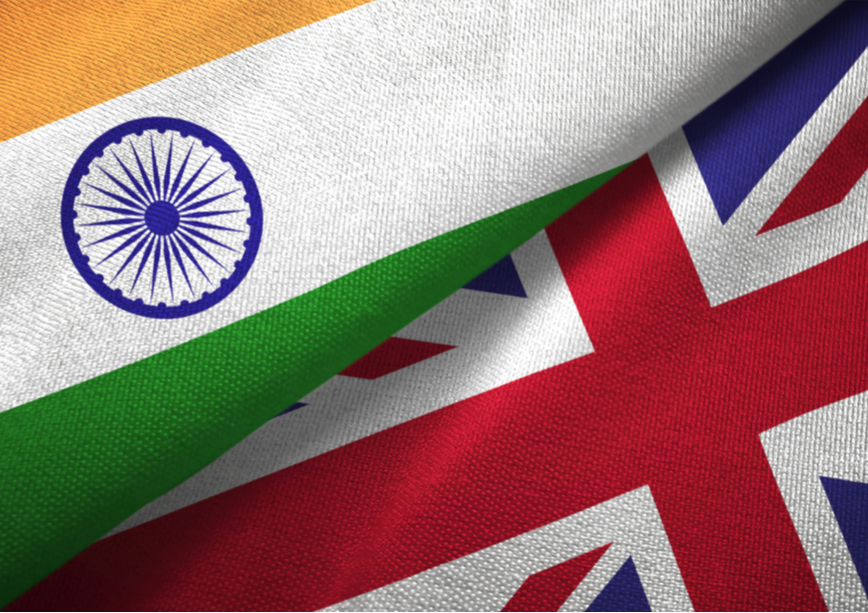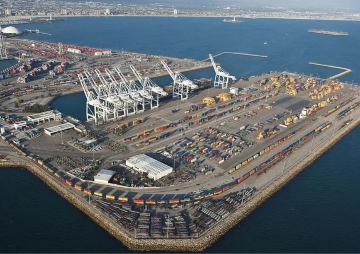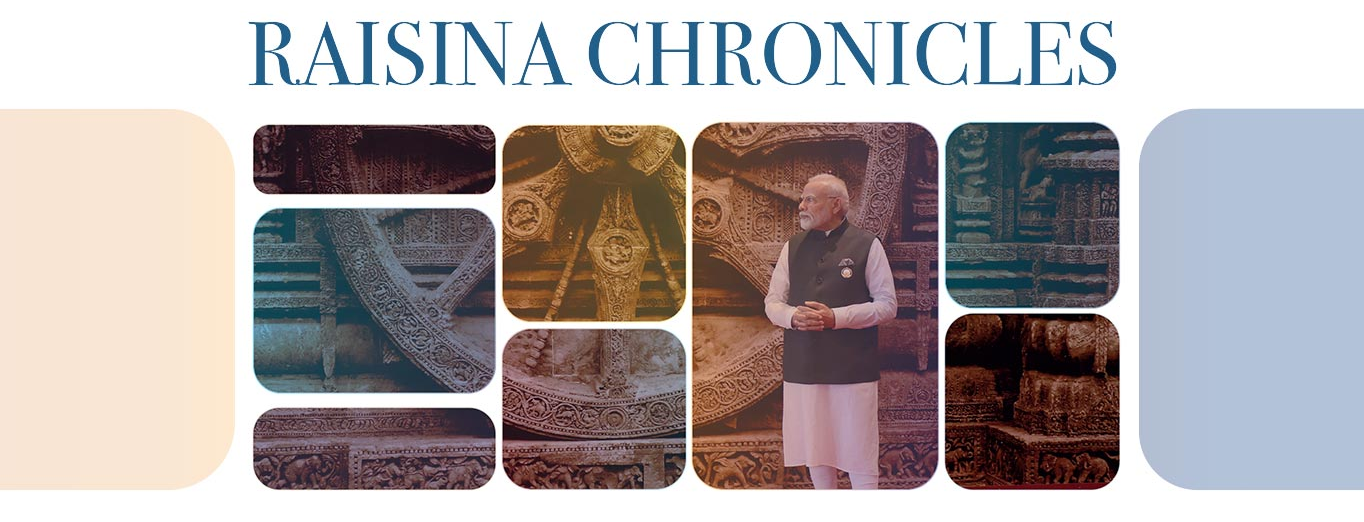
This article is a part of the series - Raisina Chronicles 2024
The 2020s feel like a new and exciting chapter in the vital relationship between the United Kingdom (UK) and India. When Rishi Sunak became our first Hindu Prime Minister in October 2022, one of his first telephone calls was to Prime Minister Narendra Modi, in which the two men reflected on the “living bridge” between our countries. It is a bridge that brings us together in all sorts of ways, most obviously through family links—1.8 million people of Indian heritage live in the UK—but also business, trade, education, science, arts, culture, sports and, increasingly, through defence and security as well.
These relationships reflect the diplomatic and commercial ties that are the legacy of our long and complex colonial history. But increasingly, they also reflect a more contemporary dynamic based on a relationship of equals and a shared adherence to a set of universal values and common interests that guide our approach to global affairs.
These relationships reflect the diplomatic and commercial ties that are the legacy of our long and complex colonial history. But increasingly, they also reflect a more contemporary dynamic based on a relationship of equals and a shared adherence to a set of universal values and common interests that guide our approach to global affairs.
That does not mean India and the UK are always aligned. Our interests and perspectives are naturally different; but the fact that we acknowledge and respect these differences is a sign of the maturity of our relationship. As an example, I was struck by the recent comment by India’s Minister for External Affairs, S. Jaishankar, when he said that “Europe needs to grow out of the mindset that our problems are the world’s problems, but the world’s problems are not Europe’s problems.” There is a good deal of truth in that, particularly when we consider the impact of climate change on countries bordering the Indian Ocean, or our struggle to roll-out COVID-19 vaccines to the whole world. The UK and the West should listen to India out of respect and because there is much for us to learn by doing so.
This explains, in part, why India and the UK have taken different approaches to Russia’s war in Ukraine. India and other nonaligned countries inevitably view events in Europe through a different historical and geopolitical lens. The Commonwealth Memorial Gates in London—which commemorate the five million volunteers from the Indian subcontinent, Africa, and the Caribbean who fought in the First and Second World Wars—is a poignant reminder of why former colonial nations may be wary of entanglement in the affairs of Europe.
Yet, I would argue the conflict in Ukraine is more than “just another” European border dispute. Indeed, for Ukraine, this is an anti-colonial struggle that should matter to the whole world. Russian President Vladimir Putin considers Ukraine a wayward territory of historic greater Russia, and the notions of sovereign borders, selfdetermination, and democratic mandates matter little to him. He does not care that the former Soviet states have a sovereign right to determine their own future, and to choose their own allies. He simply believed he could take what he wanted, and nobody would stop him; and the subsequent war crimes, sham referendums, arbitrary detentions, forced relocations speak to a wider contempt for human rights and civilised values, as does the extraordinarily nuclear rhetoric. This sense of impunity has been the pattern of Putin’s behaviour for the past 20 years: from the downing of a Malaysian airlines jet to radiological poisonings on British soil; from mercenaries in Mali to the reckless use of cluster munitions and incendiary weapons in Syria.
This struggle is already global, rather than regional, in character. It was notable that in the same week that Chinese President Xi Jinping visited Moscow to cement China’s “no-limits partnership” with Russia, Japanese Prime Minister Fumio Kishida made a surprise visit to Kyiv. Certainly, the consequences of Russia’s aggression have been felt worldwide, and it is the world’s poorest that have suffered most, whether through the shortages that flow from the disruption of global food and energy supplies, or the inflation that is being experienced around the world. This explains the extraordinary international response over the past year, with 143 countries voting to condemn Russia’s invasion at the UN, 40 offering military and economic aid to Ukraine, and 30 imposing sanctions on Russia. These countries recognise that Russia’s aggression is more than a brutal assault on a neighbouring country; it is an attack on the rules and standards of behaviour that underpin security and stability worldwide.
President Putin is not alone in seeking to challenge the global order. Last year, the Royal Navy intercepted shipments of advanced weaponry smuggled out of Iran. They included components for the kind of land attack missiles that have been used by Houthi forces to strike targets in Saudi Arabia and the United Arab Emirates. Meanwhile, North Korea conducted more than 90 missile tests, and the Kim regime has threatened to turn the Pacific into “a shooting range”. Iran and North Korea are both supporting Russian aggression in Ukraine, the latter supplying long-range attack drones. We have also seen a far more aggressive stance from China in the South China Sea and the Taiwan Strait, including military drills simulating a blockade of Taiwan. The UK does not see China as an acute threat like Russia, but we are clear-eyed about what Prime Minister Sunak terms a “systemic challenge” to our values and interests and our economic security.
President Putin is not alone in seeking to challenge the global order. Last year, the Royal Navy intercepted shipments of advanced weaponry smuggled out of Iran. They included components for the kind of land attack missiles that have been used by Houthi forces to strike targets in Saudi Arabia and the United Arab Emirates.
This degree of challenge and volatility in the world poses a set of questions for democratic countries like the UK and India. If the autocracies of the world think they can act with impunity, then are responsible nations like ours ready to respond and, if so, how?
Please read the full volume here.
Integrated Review
The UK’s answer to this question is found in our Integrated Review of Security, Defence, Development and Foreign Policy, first published in 2021 and updated in March 2023 to reflect a world that has shifted from being competitive to becoming actively contested. The main conclusion of the Review is that responsible nations must work even harder to out-cooperate and out-compete those states that are driving instability.
For the UK, this effort begins in the Euro-Atlantic. The Review reaffirmed the threat posed by Russia and singled out NATO as the UK’s most important foreign policy commitment, but it is also clear that our interests do not stop at the Suez Canal. The UK is a nuclear power, with a permanent seat in the UN Security Council. It is a member of the G7, a leader in science, technology, and higher education, and a cultural superpower. For all these reasons, the UK’s outlook is global rather than regional.
Economic opportunity explains our decision to seek ASEAN dialogue partner status and why we recently became the first European country to join the Trans-Pacific Partnership. But we recognise that security and prosperity are intertwined, and with economic opportunity comes the expectation—and the responsibility—to contribute to the freedoms and security that underpins the region’s stability. This is why, for example, we actively exercise the right of innocent passage in the South China Sea and the Taiwan Strait, because freedom of navigation matters to global prosperity here every bit as much as it does in the Black Sea or the English Channel.
The 2021 passage of the UK Carrier Strike Group to the IndoPacific indicated our desire for more regular deployments to the region (Prime Minister Sunak recently announced that it will be returning in 2025). It also opened the way for Konkan Shakti, the first tri-service exercise between the UK and India. The UK will also increasingly base more capabilities in the region, building on our existing footprint in Oman, Nepal, Brunei, and Diego Garcia, and the facilities available to us in Singapore to provide a more enduring and consistent presence. Later this year, we will establish a Littoral Response Group in the Indian Ocean, consisting of Royal Marines, Commando Helicopters, and Amphibious Shipping. I expect this to create new opportunities to train with India, at sea and ashore. By 2030, the British Armed Forces will have the broadest, most integrated, presence in the region of any European power.
But our presence is far larger than our naval and military footprint. It reflects a maximalist approach to our national security that aligns the work of the British Armed Forces even more closely with our trading ambitions and with our domestic strengths in science and security. This is exemplified by our Global Combat Air Programme to develop a sixth-generation fighter with Italy and Japan and by the AUKUS agreement with the US and Australia. In entering such partnerships, we bind ourselves together industrially, technologically, and militarily, and also in the way we respond to the security challenges of our time.
The UK-India Partnership
But what of the defence partnership between the UK and India? What is the extent of our ambition? And what are the ‘big ideas’ in defence and security that can bring us closer together over the coming decades?
As two of the world’s leading economic powers, reliant on seaborne trade, we have steadily increased cooperation on maritime security in recent years. This includes an agreement to share information on grey and dark shipping and active participation in Prime Minister Modi’s Indo-Pacific Oceans Initiative. But we are ready to do more. The UK has a depth and breadth of expertise to contribute—in hydrography and international maritime law, from our experience of counterpiracy operations in East Africa, and our role in information sharing and multi-agency integration in UK waters.
As two of the world’s leading economic powers, reliant on seaborne trade, we have steadily increased cooperation on maritime security in recent years. This includes an agreement to share information on grey and dark shipping and active participation in Prime Minister Modi’s Indo-Pacific Oceans Initiative.
There is growing cooperation in air and land as well as maritime. In March, Exercise Cobra Warrior saw five Mirage aircraft and two C-17s from the Indian Air Force visit the UK for four weeks to train alongside the Royal Air Force and other partner nations. The following month, Indian Army personnel arrived in the UK for Exercise Ajeya Warrior with the British Army, now in its seventh iteration.
It is natural that our industry-to-industry collaboration is also growing, with avenues of cooperation including Integrated Electric Propulsion for ships and advanced core technology for jet engines. As India seeks to strengthen its own sovereign defence industry, there is a huge amount that the UK’s defence sector can contribute, for example, in the underwater battlespace and with air and missile defence, lightweight tanks, modern fighter aircraft and helicopters.
Finally, there is the challenge of reform and modernisation. The Ukraine crisis has underlined the importance of speed and agility required to introduce new equipment into service, the resilience of our stockpiles, and our ability to mobilise the entire defence enterprise, including industry, around our objectives, and to do so at pace. The UK’s Integrated Review was backed by increased investment in the armed forces, which allows us to address these issues and become more lethal, more agile, smarter, and more sophisticated across the traditional domains (land, sea, and air) and the new domains of cyber and space.
Not all these challenges are the same for India. Our armed forces are structured differently, but we have more in common than we think. After all, our countries are two of only six with the expertise, capacity, and ambition to build and operate nuclear submarines and aircraft carriers, the hallmarks of global military powers, and together, India and the UK face the same simple dilemma—as modern warfare becomes ever faster, as the threats multiply and become more complex, how do we stay ahead of our competitors?
I would suggest the answer lies in the power and relevance of military and industrial partnership, and the need to strengthen and defend the international rules-based system wherever it is being challenged—a task that India and the UK are ideally placed to support.
The views expressed above belong to the author(s). ORF research and analyses now available on Telegram! Click here to access our curated content — blogs, longforms and interviews.




 PREV
PREV



